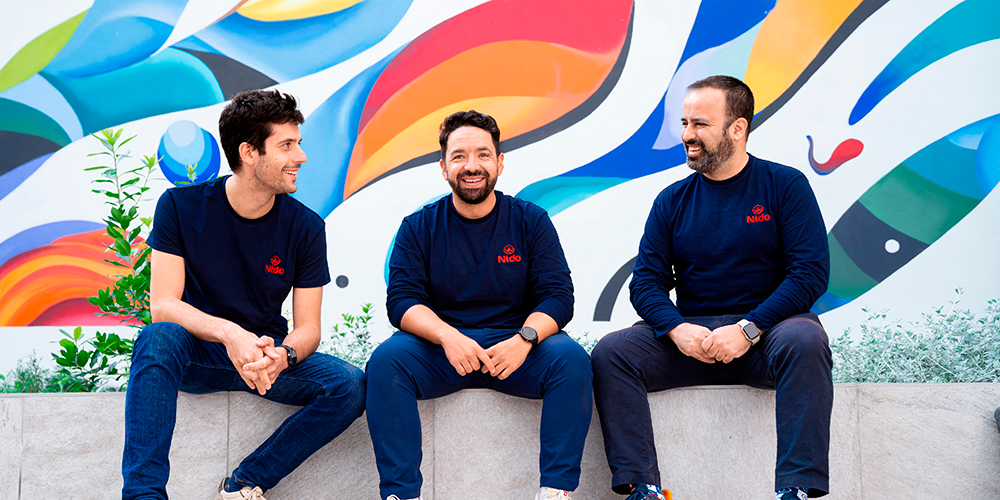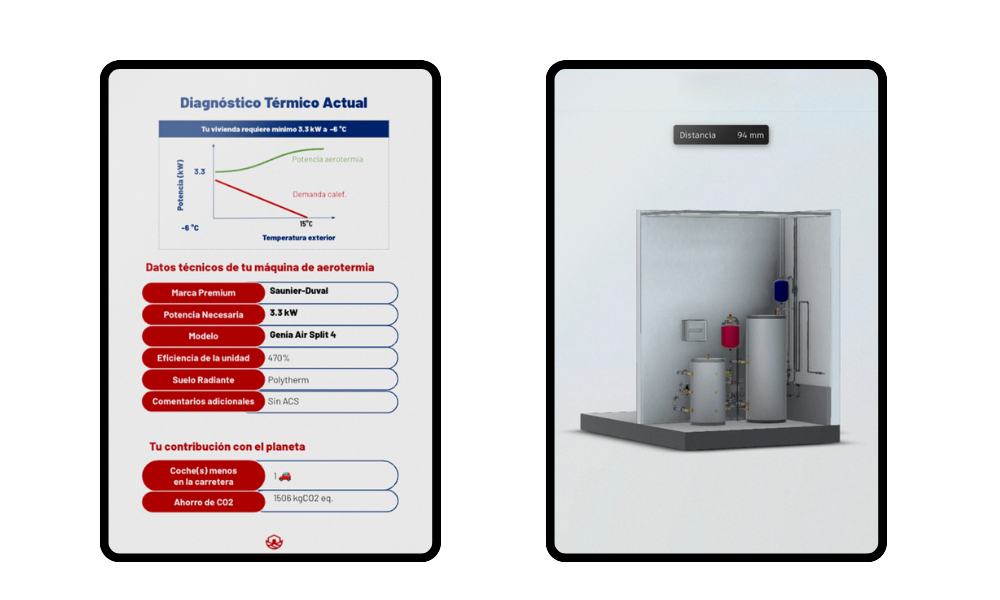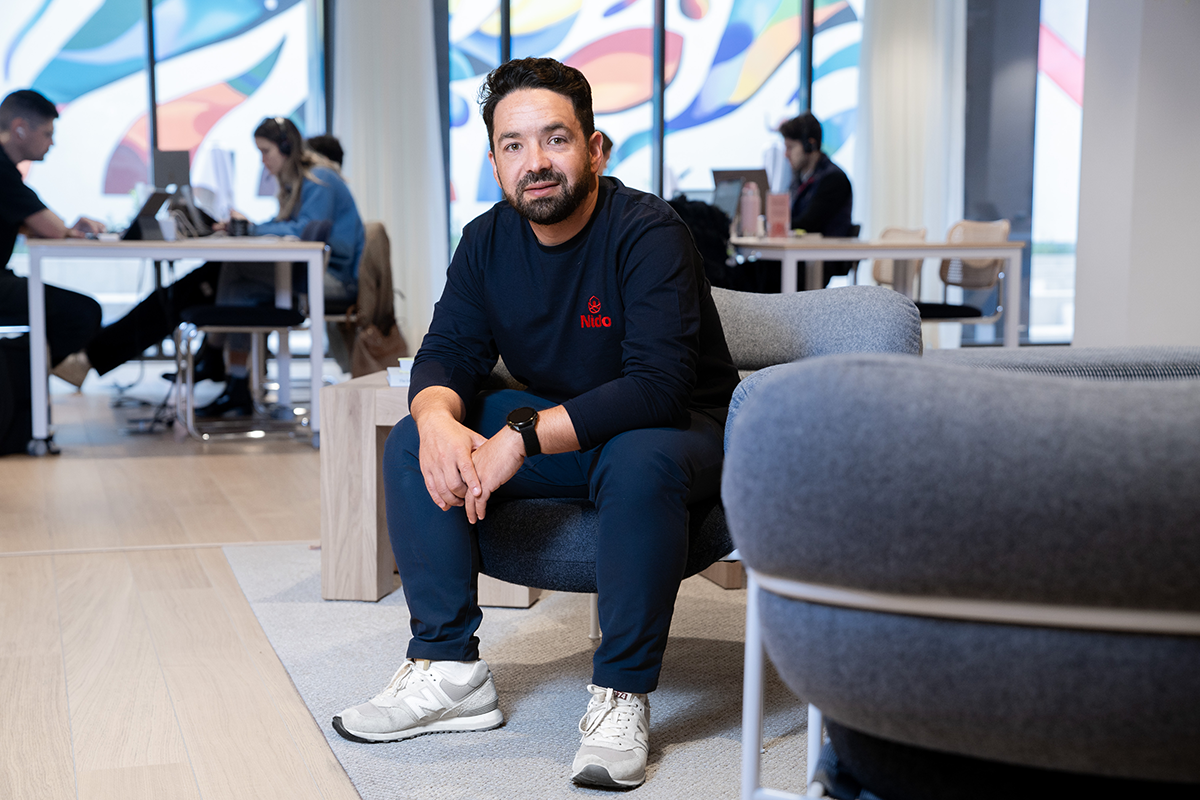
With its technological platform, the Spanish startup Nido is revolutionising the design, marketing, and installation of heat pumps in the residential sector.
The company recently closed a €5 million Seed funding round, backed by Iberdrola, Ship2B Ventures through the BSocial Impact Fund (supported by Banco Sabadell, the EIF, and AXIS), Zubi Labs, Decelera Ventures, and Silence VC, as well as the Valencian Institute of Finance (IVF) and ENISA. Over 15 national and international business angels have also expressed their confidence in the project seeking to accelerate the energy transition through heat pumps.
The environmental impact of the residential sector
The residential sector is one of the major sources of global energy consumption. Both residential and commercial buildings account for a significant share of global greenhouse gas emissions due to energy usage for activities such as heating and cooling. This impact is particularly pronounced in densely populated urban areas, where pressure on energy resources is greater.
The International Energy Agency (IEA) reports that 90% of buildings rely on gas boilers, which intensifies CO₂ emissions. By 2050, heating and cooling for residential and commercial buildings are expected to require over 18,000 terawatt-hours. This energy primarily comes from the combustion of fuels and electricity-based systems, highlighting the urgent need for more efficient and sustainable solutions.
Heat pumps as a solution to energy challenges at home
In this context, heat pumps are emerging as a sustainable and efficient alternative. They harness air energy to provide heating, cooling, and domestic hot water without direct combustion. These pumps are 3 to 5 times more efficient than conventional gas boilers and produce no direct emissions, significantly reducing the carbon footprint of buildings. Additionally, they can be integrated with other renewable technologies, such as solar panels, to further enhance energy efficiency.

“Refrigerant cycle” phases: evaporation, compression, condensation, and expansion.
The potential of heat pumps to reduce dependency on natural gas for heating is especially significant in the European Union, where natural gas remains the most widely used heating fuel and where gas prices have risen sharply. European governments, aware of the importance of this transition, have promoted policies that incentivise heat pump adoption through subsidies, tax credits, and stricter energy efficiency regulations. The European Green Deal aims for nearly zero-energy buildings by 2050, contributing to a 10% annual growth in the heat pump market over the past five years, with 20 million units installed across the continent by 2022.
Barriers to the adoption of heat pumps in residential settings
Despite their advantages, widespread adoption of heat pumps faces several challenges. The initial installation cost can represent a significant investment for many households, particularly without adequate financing or incentives. Furthermore, a shortage of skilled technicians specialising in this technology complicates installations and leads to project delays. Various studies, including one by McKinsey, have identified the need for greater training in the installation sector as a priority to accelerate the energy transition.
Another obstacle is consumer perception. Many homeowners are unfamiliar with the long-term benefits of heat pumps, leading to scepticism about its reliability compared to traditional systems. Additionally, the current electrical infrastructure in some regions is not prepared to handle a significant increase in energy demand from heat pump installations, potentially requiring further investment in the electrical grid.
Nido’s contribution to reducing fossil fuel dependence
Nido has identified these barriers and developed an integrated solution to address them. Its digital platform connects all stakeholders in the value chain – from end customers to installers, suppliers, and energy companies – with the aim of streamlining and optimising the heat pump installation process. Through advanced 3D modelling tools (BIM), Nido enables instant generation of quotes, designs, and installation guides, reducing project execution times by 75%.
One of the platform’s standout features is its project pre-qualification capability. Users can complete an initial questionnaire that gathers information about their home’s characteristics, such as thermal insulation, orientation, and existing heating systems. Based on this information, the platform automatically generates a preliminary quote, allowing customers to evaluate options before arranging a technical visit.

Nido’s digital platform
Since its founding in 2023, Nido has facilitated over 10,000 installations across 10 autonomous communities in Spain, achieving an annual reduction of more than 420 tonnes of CO₂ emissions. This impact is equivalent to the emissions absorbed by a forest of 21,000 trees. “We invested in Nido because of its holistic approach, which creates systemic impact in the transition towards a more sustainable and resilient model,” commented Jaime de Antonio, Investment Manager at Ship2B Ventures.
Similarly, Óscar Cantalejo, head of Iberdrola’s open innovation programme Perseo, highlighted: “Nido’s technology has a real and measurable impact on decarbonisation, enhancing energy efficiency in households.”
Nido’s expansion and growth in the European market
With the €5 million funding round, Nido plans to expand its presence in key markets such as France and Germany. Additionally, the company will integrate artificial intelligence into its platform to enhance project personalisation and optimise real-time resource management.
With its vision of democratizing access to aerothermal energy, Nido is also working on developing financial solutions that make it easier for end customers to adopt this technology.
“The future of clean energy requires innovation and collaboration, and at Nido, we are ready to lead this change,” stated German Peralta, CEO of the startup.

The path to climate neutrality requires a profound transformation in how households generate and consume energy. The combination of innovative technology, government incentives and increased social awareness is driving this transition. Nido is a strategic ally in this process, leading the adoption of sustainable solutions that benefit both the environment and the household economy.
You can learn more about their solutions at gonido.com.
